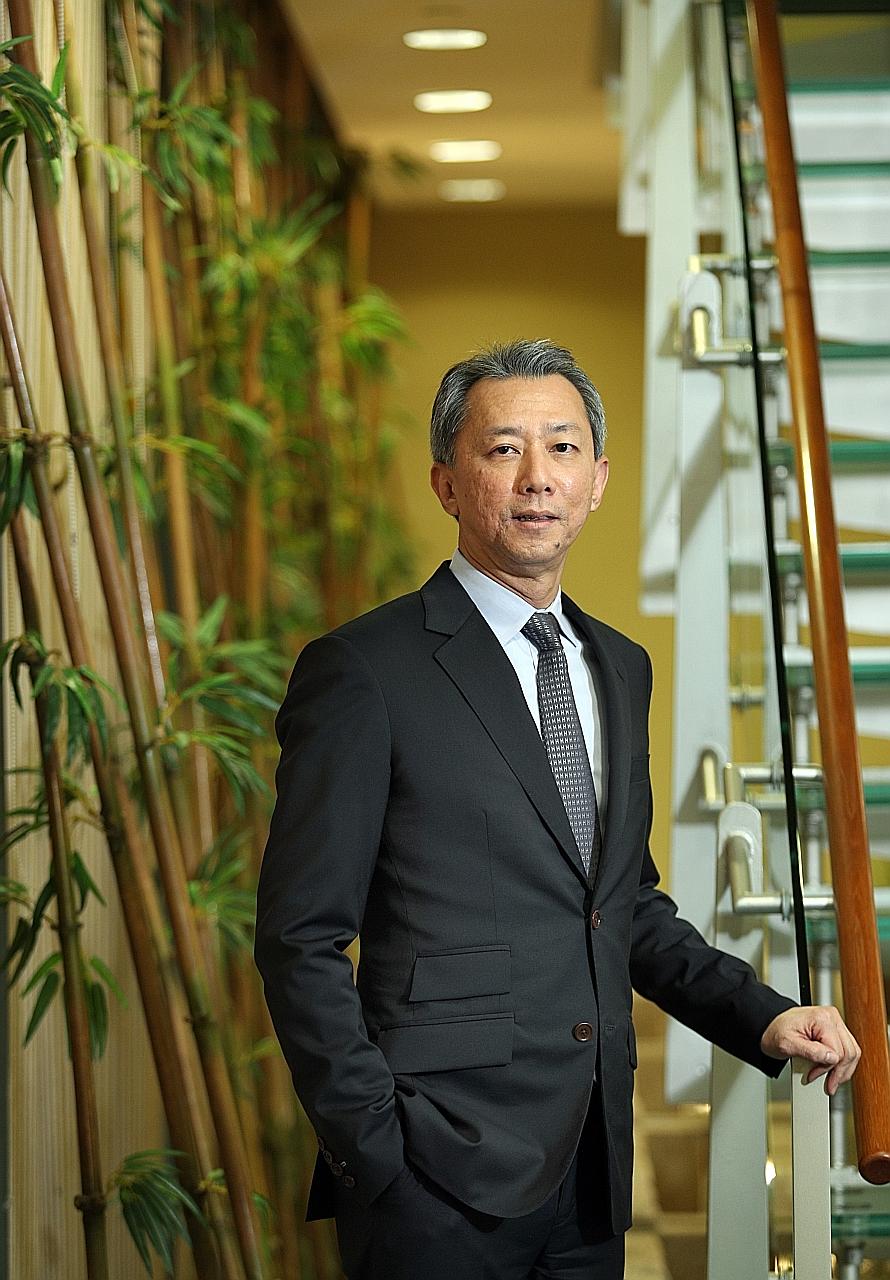Regulations on new tech work when public, private sectors collaborate: Forum
Sign up now: Get ST's newsletters delivered to your inbox

Mr Chia Song Hwee, deputy chief executive of Temasek International, spoke about the importance of regulations.
The public and private sectors must work together for regulations on new technologies to work, said panellists on the second day of the FutureChina Global Forum yesterday.
The five-member panel made up of leaders in government and high-level company representatives came to this conclusion after a debate on whether digital infrastructure or regulations are more important for new technologies to succeed and benefit society.
These two factors came up tops in a poll conducted of viewers at the forum held online; they voted for digital infrastructure, while regulations came in at second. The other options - research and development and more specialised manpower - rounded up the poll's results.
Panellist Chia Song Hwee, deputy chief executive of Temasek International, said that regulations should be the most critical factor for new technologies to develop, when the moderator asked if the panel disagreed with the poll results.
Mr Chia said regulation and policy are the "most difficult problems to solve" for the potential of the digital economy to be fully realised.
Regulators have to consider how they want to develop the competition, as well as take into account how the new technology will affect society, he added.
Without the appropriate mindset, there is the tendency to over-regulate, which stifles innovation, he added.
"If you leave it to the commercial world, we will innovate. We will find money, we will do things, but then we can go overboard," he added. "Finding the right balance between regulation and having the environment where people can innovate and business ideas can come to realisation is the important (factor)," he said.
Another panellist, Infocomm Media Development Authority (IMDA) chief executive Lew Chuen Hong, said that "indeed, an enlightened policy and regulation are critical, but... the idea that it can be enlightened regulation (is) not an oxymoron".
"We think of regulation almost as if it is an externally imposed heavy hand, but... if you go by the idea of a guiding hand, a lot can be done as far as standards (and) providing certainty," he added.
IMDA believes "in working with the market, not against the market", Mr Lew said.
Other members of the panel, titled Embracing The Next Frontier Of Technological Growth Towards New Economic Future, were Senior Minister of State for Health Koh Poh Koon; Mr Li Tiantian, founder and chairman of DXY.cn, a website that provides academic information to doctors; and Mr Wei Feng, founding partner at fund management firm COCOCapital.
The session was moderated by Mr Duleesha Kulasooriya, executive director of Deloitte Centre for the Edge, Asia-Pacific.
Before the panel discussion, Dr Koh said in a speech that the changes brought about by Covid-19, such as social distancing measures, have emphasised the importance of seizing opportunities in the growing digital economy.
He also urged companies to tap opportunities in Asean trade, as businesses are looking to diversify their supply chains.
Dr Koh said that trade flows between China and Asean had been growing in recent years. Volumes in the first six months of the year grew 2.2 per cent, placing Asean as China's largest trading partner and vice versa, he added, citing statistics from China.
"It's timely for both sides to see how we can further enhance the ACFTA (Asean-China Free Trade Agreement) to ensure it remains 'fit for purpose' in a post-pandemic world," he said.


